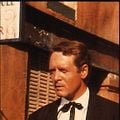
While that made him popular with filmmakers like George Lucas, Norman Jewison and Ridley Scott, it also brought criticism from a new generation of executives and agents who were more bold, brash and cutthroat.īut then, most of them did not come from Hollywood royalty like Ladd (and fellow executive producer Richard Zanuck). He had the scruples to quit his $2 million-a-year job as head of 20th Century Fox because his staff was not being compensated well enough for its efforts on such blockbusters as “Star Wars” and “Alien.” He represented an older era in Hollywood when executives and even agents (he started his career as an agent for the likes of Robert Redford and Judy Garland at CMA under Freddie Fields) still possessed a modicum of gentility. was noted for his good taste, his warmth and general low-key (some said inaudible) manner, which made him a singular personality among top studio executives. was responsible for such major films as “Once Upon a Time in America,” “The Right Stuff,” “Blade Runner” and, more recently, Ben Affleck’s “Gone, Baby Gone.”Īffectionately known in the industry as Laddie, Alan Ladd Jr. He also ran the Ladd Co., one of the first major boutique production companies as well as an independent distributor of many of its own films.

Ladd led Fox through a crucial period in the ’70s and later topped MGM (twice).

In later years, Ladd became an independent producer, and his most notable accomplishment was 1995 Oscar best picture winner “ Braveheart,” starring and directed by Mel Gibson.


 0 kommentar(er)
0 kommentar(er)
